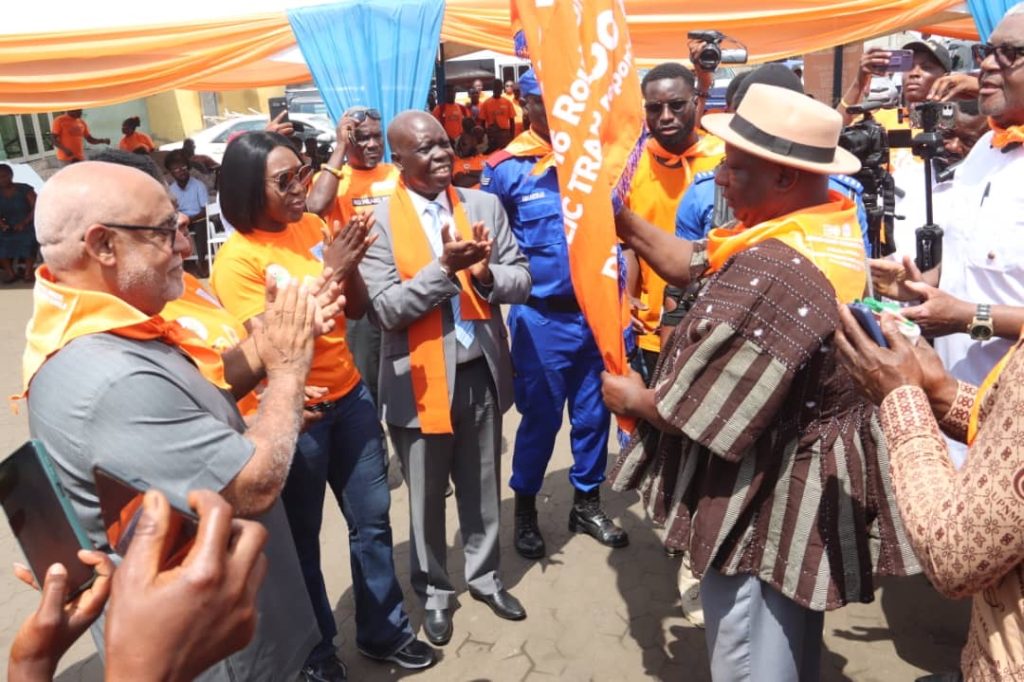By Edward Dankwah
Accra, Nov. 26, GNA – Mr Robert Kuzoe, the Senior Manager, MTN Ghana Foundation, says MTN Ghana is dedicated to creating a society where everyone can live free from violence and discrimination.
He said Gender-Based Violence (GBV) was a significant issue that affected countless individuals in various ways but often remained hidden yet deeply impacted families and communities.
The Senior Manager was speaking at the launch of 16 Days of Activism against Gender-Based Violence titled, “16 Routes, 16 Stations: Public Transport Unite Against Gender-Based Violence”.
It was in collaboration with the United Nations Population Fund (UNFPA), Ghana Private Road Transport Union (GPRTU), and the Ministry of Gender, Children and Social Protection focusing on GBV within the transport sector.
Mr Kuzoe said survivors or GBV endured physical and psychological trauma, while children witnessing such violence may carry lifelong emotional scars.
He said the United Nations (UN) had reported that GBV affected one in three women globally and occurred in homes, schools, and workplaces across all cultures and socioeconomic classes.
“On this 25th anniversary of the International Day for the Elimination of Violence Against Women, we emphasise that violence is preventable”.
“This is a time for reflection, to assess progress and renew our commitment to a safer, more equitable world,” he added.
The Senior Manager said by working together with Government, organisations, communities, and individuals, the root causes of violence could be addressed, and establish effective support systems.
He said MTN Ghana seeks to inspire collective action, empowering people to challenge harmful norms and support survivors.

“We believe that by joining forces, we can create a safe and inclusive environment for all
“Our Group office is leading this campaign, and we expect all countries where MTN operates to participate,” he stressed.
Mr Charles Abani, the United Nations Resident Coordinator, said the initiative sought to harness the power and reach of the Ghana public transport network, to create awareness and foster action against GBV.
He said GBV remained a significant challenge that transcended borders, cultures, and systems, affecting women and girls as well as some men in every part of the world.
He said for over two decades, the United Nations had been at the forefront of fighting efforts to end GBV with initiatives such as the “Unite” campaign, which calls for bold, innovative actions to end things.
Mr. Abani said public transport in Ghana played a vital role in the daily lives of millions of citizens, adding that it was a space where people come together, regardless of their background, to travel for work, school or for social activities.
“It makes it a prime opportunity for dialogue and education on this critical issue,” he added.
Mr Abani said there had been numerous accounts of verbal and physical violence, including instances of sexual harassment and exploitation, where vulnerable women and girls, especially those traveling or stranded alone at stations were particularly at risk of such abuse.
He said these incidents, including cases of trafficking, served as a stark reminder that complacency was not an option.
Mr Abani said GBV extended beyond the transport system and was a societal issue that required a collective response, such that while this campaign would initially focus on unions and bus stations, its impact and scope reached far beyond these areas.
He urged all and sundry to actively participate in this campaign.
GNA